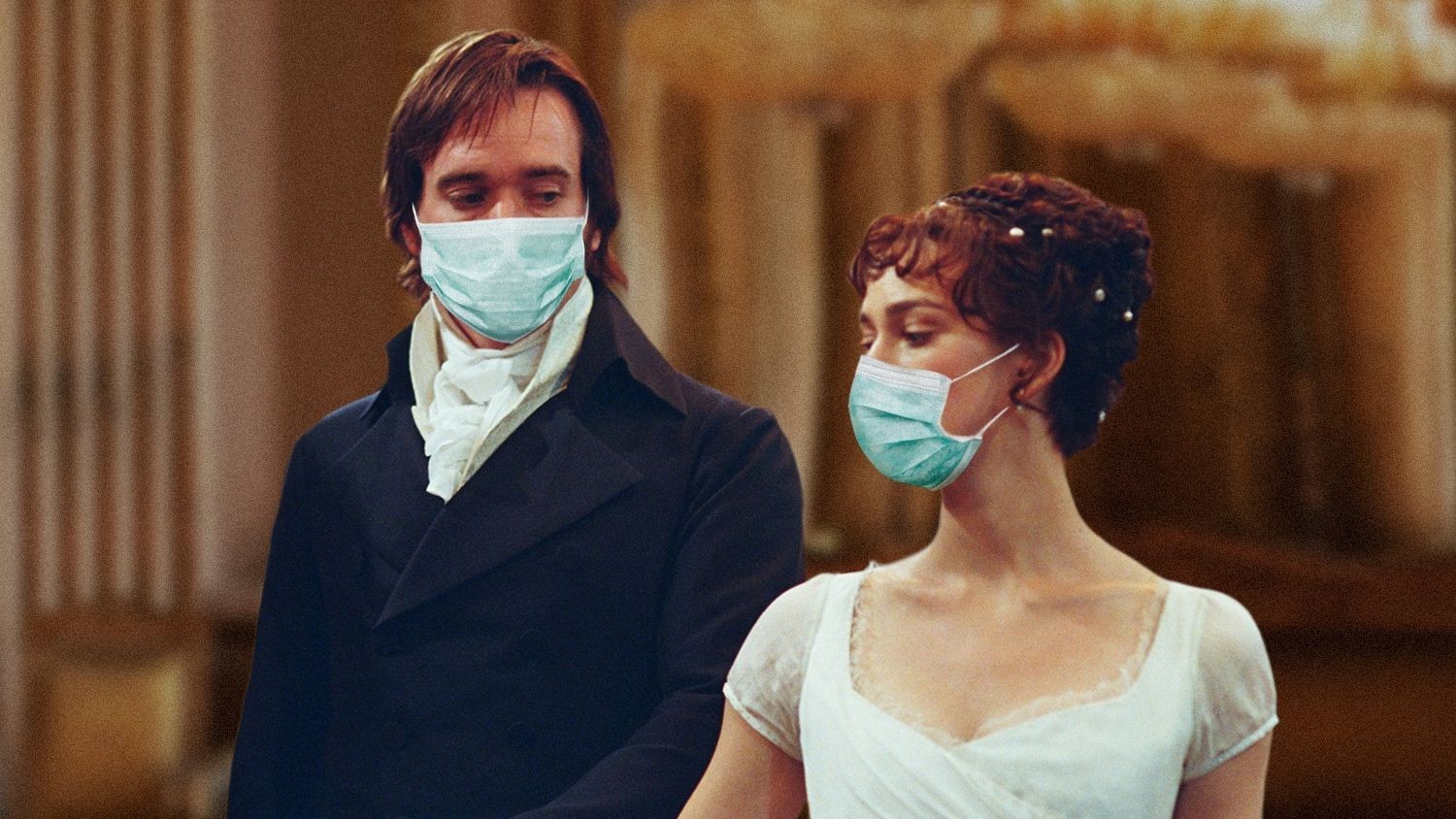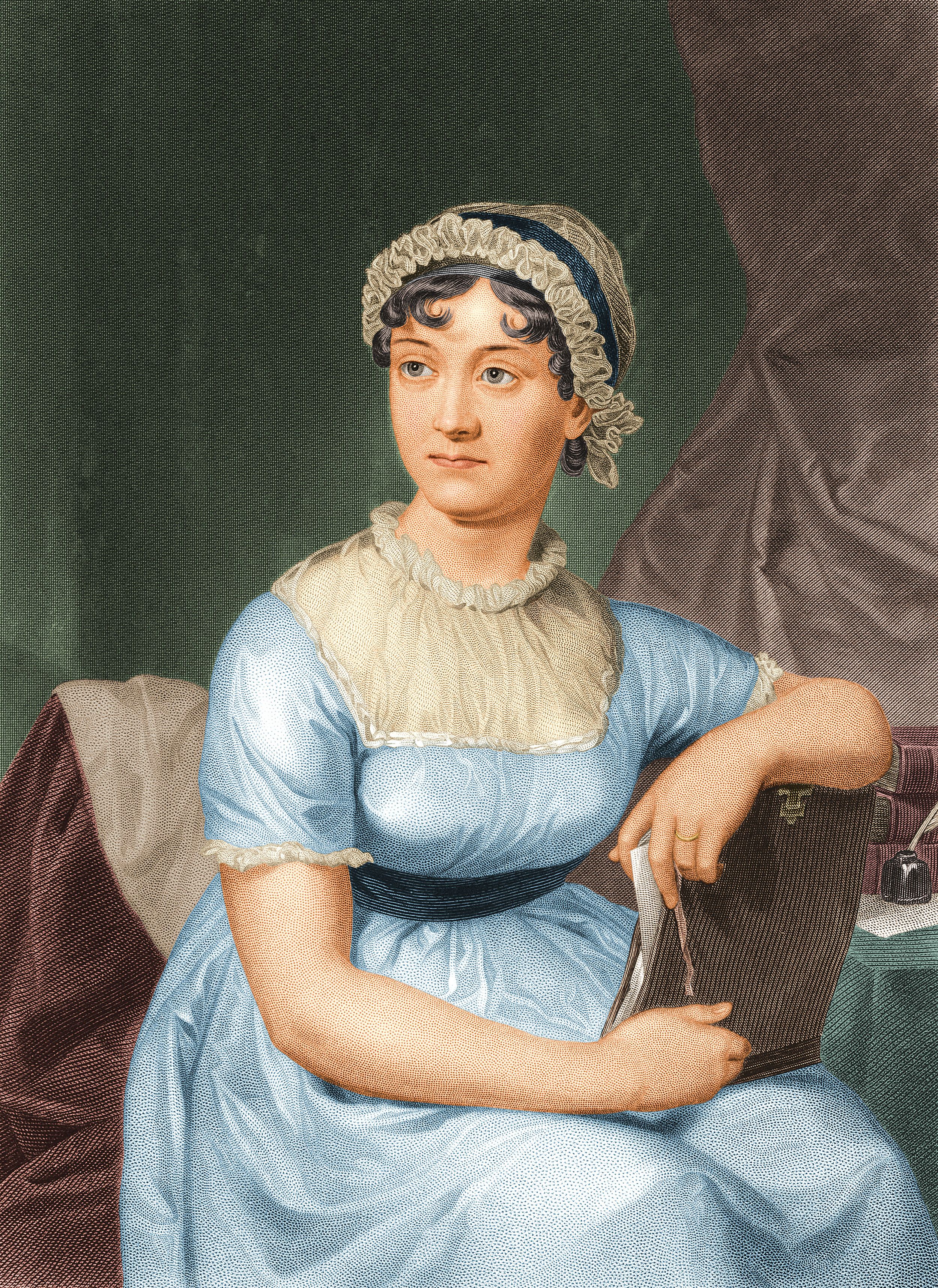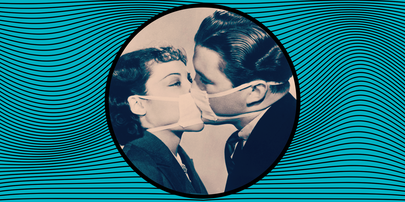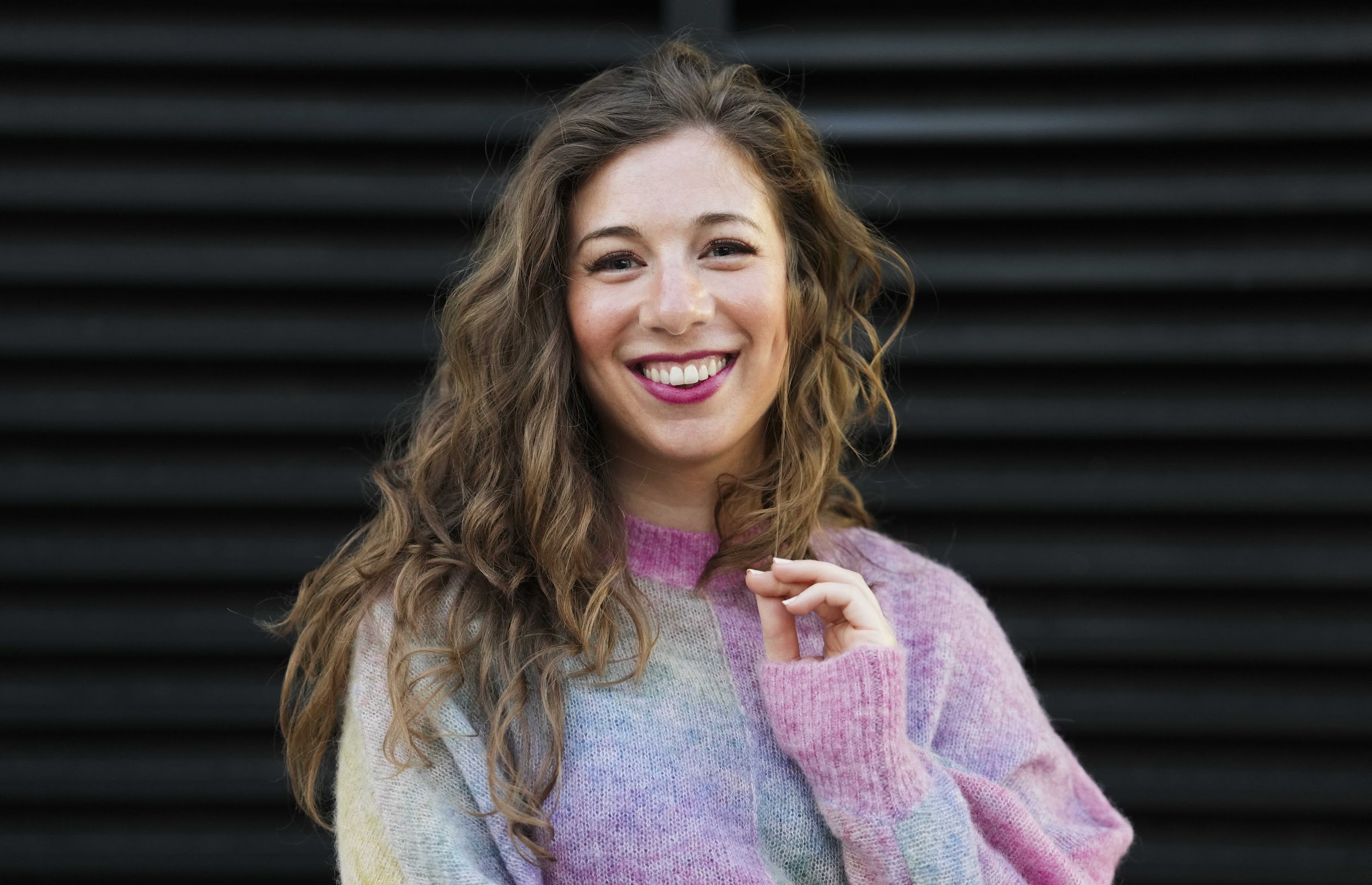Sense and Social Distancing
Isolated, socially distant, and unable to touch anyone: The single life under COVID-19 is eerily Jane Austen-esque.


As all the commercials solemnly inform me, we are living in An Uncertain Time. If it is not Uncertain, it is definitely A Trying Time. Or nothing short of An Unprecedented Time.
Apologies to all the brands, but I do not think this is an unprecedented time. I’d say it is very precedented indeed. It reminds me of a place I never really wanted to go but was forced to venture often as an English major. It reminds me of a Jane Austen novel.
In a Jane Austen novel, there’s always a young woman on the cusp of adulthood, right at that giddy, exhilarating stretch when your life really starts to happen. But instead of getting to travel the world, galavant about with friends, go to a university, maybe get a job so her entire financial future doesn’t hinge on her fiancé’s estate situation, our heroine just…hangs out at home. With her parents. And her siblings. And then: She waits. Her life is constrained by an endless list of things she is not allowed to do, like go literally anywhere without it being a whole production, or enjoy so much as a friendly hug with a potential love interest.
Social distance like you’re a regency couple that dare not be closer than 6 ft least you give into your feelings and embrace, thus ruining your reputation beyond repair pic.twitter.com/pZXuC2xdvHMarch 30, 2020
Stay-at-home orders have forced multitudes of us into circumstances not dissimilar to these. You’re stuck with your family or you’re stuck by yourself. Where your world was once bursting with spontaneous jaunts to new locations and chance encounters with promising strangers, it is now confined to the walls of your apartment, or the edge of your front yard. There is no “bumping into” anyone anymore, on pain of actual death. This is misery manifest for so many reasons, not the least of which is the verve and delight it has sucked out of dating.
Having arrived at this thesis—we are trapped in a Jane Austen novel, and it is a nightmare—I allowed that I was maybe being a bit harsh on Austen, literary icon and godmother of Clueless, an objectively perfect film. So I reached out to some experts to confirm my hunch and to advise us all on how to proceed. As long as we’re living in Austenland, can we make the whole thing bearable?

Jane Austen, clairvoyant.
I called up Linda Troost, professor of English at Washington & Jefferson College in Pennsylvania and an expert on Jane Austen specializing in film adaptations (she and her husband co-edited the first book on the subject: Jane Austen in Hollywood), and Dr. Natasha Duquette, professor and chair of the English department at Canada’s Tyndale University, who sits on the Board of Directors for the Jane Austen Society of North America. Both agreed with my theory: In life under COVID, the parallels to Austen’s works are plentiful.
For starters, there’s the forced, severe separation from our communities and our attendant inability to grow our social circles. Duquette pointed out that at Chawton House, Jane Austen’s brother’s estate, “you're really isolated,” a half hour’s walk from the closest market. When Austen did go to the store, “It might have been one of her only ways of socializing with people outside of their family.” (Incidentally, the realization that my only opportunity to banter with a new acquaintance is my fleeting weekly trip to buy produce sparked my whole I am trapped in a Jane Austen novel SOS spiral in the first place.)
Get exclusive access to fashion and beauty trends, hot-off-the-press celebrity news, and more.
In late-18th century upper-middle-class England, “you'd have very limited opportunities to meet people unless they were friends of your family,” said Troost. “You have to basically wait for someone to arrive. You can't go out and find somebody. You couldn't wander over and visit them without a good excuse.”
So how does anybody ever fall in love? “A lot of Jane Austen heroines wind up marrying friends of friends or brothers of friends,” Troost said. In Austen’s world, those who swoop in from beyond your known sphere are eventually revealed to be a scoundrel or libertine of the highest order, or some other disqualifying thing.
I suggest to Troost that this strategy of waiting around for your friend to have a brother who is available to date you is… not ideal for the modern woman. She considered this. “There's that great moment [in Pride and Prejudice] when Jane Bennett is quarantining at Netherfield Park….” Quaranting! Relatable!
You have to have been trapped in the right house at the right time.
Mrs. Bennett actually sent Jane out into the rain on horseback on purpose so Jane would catch cold and be forced to stay at Netherfield until her health returned, just so Jane could have the chance to flirt with a guy she met at a dance. Kris Jenner levels of strategy there. Extremely sneaky, yet, in the current climate, I must say: not advisable.
So while Jane is convalescing, Elizabeth, Jane’s sister, goes to visit—and winds up stuck in a house with Mr. Darcy, who is also visiting Netherfield, and who (207-year-old spoiler alert) is the man she ultimately marries.
“So that's nice,” Troost offered. “But you have to have been trapped in the right house at the right time.”
Assuming things work out such that a character in an Austen novel meets a new person (e.g. her friend’s cute brother or some much older, land-owning man with whom she has nothing in common), does she ever get to...touch them?
“To touch someone was very intimate,” said Troost. So it almost never happened, unless you were dancing. For fleeting moments, your—gloved—hand may be palm-to-palm with your suitor’s. That’s about as close as you get.
“In Jane Austen, there is a really important theme of propriety,” said Duquette. Just as we find ourselves staying six feet apart from one another out of a mixture of kindness (not wanting to infect others) and fear (not wanting to get infected), characters in Austen novels were wary of upending the social code that dictated how they were to interact—both out of respect for others and for fear of how they would be judged or ridiculed for failing to abide by such codes of conduct.
If you think that all this space is something of a buzzkill, well, you’re not the first to come to that conclusion. “People might say Jane lacks passion,” Duquette said, referencing a Charlotte Brontë quote about Jane: “The passions are perfectly unknown to her; she rejects even a speaking acquaintance with that stormy sisterhood.” Duquette takes issue with this characterization. “The boundaries of propriety do not suppress desire but increase desire.”
For fleeting moments, your—gloved—hand may be palm-to-palm with your suitor’s.
She pointed to a scene from Persuasion, in which Captain Wentworth overhears Anne Elliot “passionately defending women’s constancy.” Wentworth sees that, despite his and Anne’s broken engagement, Anne still loves him. “So he sits and silently writes this declaration of love and leaves it there for her,” Duquette says. “He leaves the room and she reads it in his absence and realizes he still loves her.”
I interrupt here because, I’m sorry, this is the prime example of Austen’s passion? He’s in the same room as someone he loves and instead of approaching her and saying so, he… writes a letter…leaves it on a table…and walks out of the room? I am underwhelmed by this not-so-grand gesture, but as Duquette astutely noted, “It's like how we're receiving deliveries today. It's a no-contact delivery!”
“It’s a very passionate letter he writes,” she added. So is that the case today? Are texts, Facebook messages, even emails carrying an intensity that they didn't have before COVID-19? Duquette theorized that our digital correspondence is now “carrying the intensity of longing…because you don’t know when you’ll see each other up close or in person.”
Though this all sounds torturous, my Austen experts insist that it does not have to be so. “Distancing is actually very romantic,” Troost said. She believes we might be surprised at how exhilarating extremely PG contact will feel in a post-COVID world. “if it's been a long time of building up a relationship and then suddenly he kisses your hand...wooo, that's exciting! It's the delayed gratification.”
Duquette believes we can be inspired by Austen heroines’ “patience and perseverance.” She cited Mansfield Park, one of Austen’s longest novels. “In some paperbacks, it’s 400 pages that you're waiting for Fanny and Edmund to realize they're in love.”
Austen, who was very lonely and, like an ur-millennial, sometimes referred to her plants as “friends,” would advise us all to “find something to nurture while you're waiting… But [stay] hopeful!” says Duquette. “Fanny never loses hope. I think there's a close relationship between hope and desire, because those two things are both looking towards the future.”
And yet, I must present a counterpoint: Maybe the real takeaway from these books is to emerge from quarantine with less patience than ever before. Everything you were holding off on doing or saying, all those hands you didn’t hold, all those feelings you kept to yourself—now you’re trapped with them, all those unsaid words bouncing around your brain in your empty apartments. It does not have to be this way! When the vaccinated masses can socialize once more, don’t hold back. Waiting 400 pages to tell someone you like them? In this economy? Absolutely not.
For more stories like this, including celebrity news, beauty and fashion advice, savvy political commentary, and fascinating features, sign up for the Marie Claire newsletter.
Related Story

Jessica M. Goldstein is a freelance writer covering all things culture. Her debut novel, RETRO, is coming out from Ballantine Books in 2026. You can read her in The New York Times, Vulture, McSweeney's Internet Tendency, and more.

